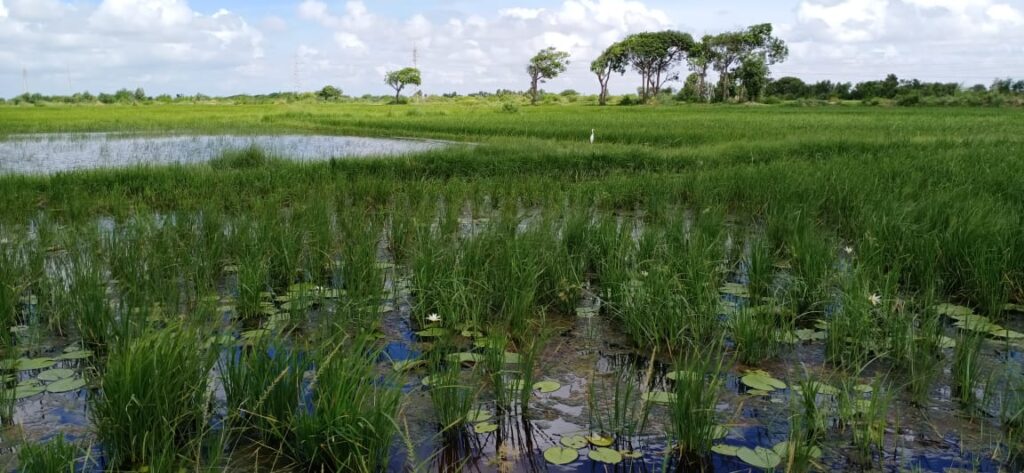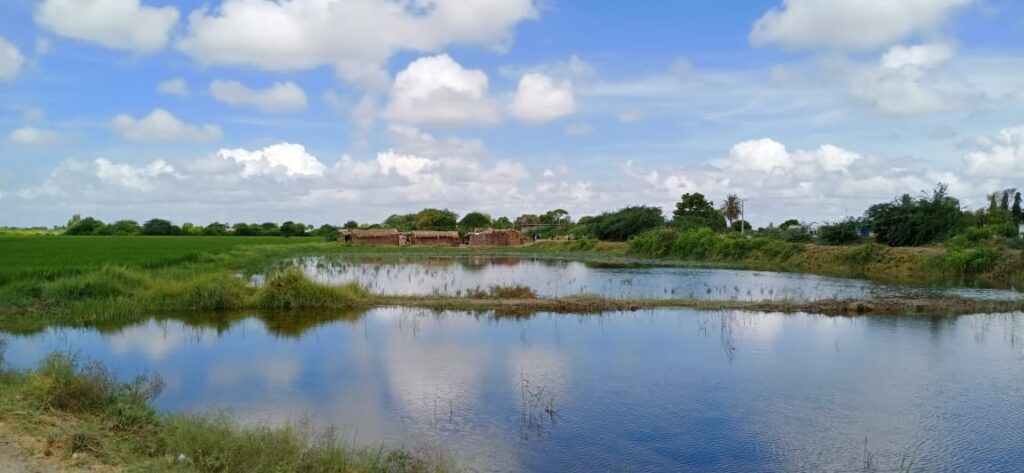A healthy lifestyle is a mixture of habits. Diet, exercise, sleep and other factors need to be balanced. Likewise, a sustainable farm operates with a balanced plan of soil, crop and water management techniques.
Man installing soil moisture sensors.
Soil moisture sensors facilitate advanced irrigation planning and help measure water consumption in agricultural fields. Photo credit: Matt Yost
The western United States is a region of limited water resources. In this case, water management techniques are a more important part of a sustainability plan. The scarcity of water is of increasing concern in the world. This is due to urban sprawl, depletion of water supplies in some areas, and predicted water shortages in the future with less snow accumulation.

The water management techniques that lead to optimal use of limited resources are not well identified. Again. Matt Yost, a researcher at Utah State University, strives to find the best combination of practices to maximize water performance, profit and efficiency.
“Most of the farmland in Utah and the western United States is irrigated,” says Yost. “There are areas where groundwater from aquifers is used up faster than it can be replaced. Some of these areas are under intense pressure to conserve water ”.
The irrigation water comes from aquifers well below the surface of the farm. Aquifers naturally fill with surface water by precipitation. Increased use of water can lower the water table. Over time, wells can dry out. These factors make water optimization crucial for food security.
Irrigation pivot in the field.
Pivot technology trial in central Utah. Left to Right: Low Altitude Spray Application (LESA), Medium Height Spray Application (MESA), and Mobile Drip Irrigation (MDI). Photo credit: Matt Yost
Yost studies many techniques for water management. These include the use of irrigation planning and advanced pivot irrigation technology. In addition, his team studies crop and soil management practices. They look at drought tolerant crop rotations, cover crops and reduced tillage.
Yost’s team is working with many farmers in Utah to conduct farm-scale trials.
“Irrigation research is difficult and expensive in farmers’ fields,” says Yost. “This is especially true when it comes to irrigation planning. Although difficult, this on-farm research and collaboration is crucial to understanding and adopting new water optimization techniques. “
So what is the best combination of management techniques to maximize water performance, profit and efficiency? The answer is not yet clear. The results and analysis are still pending, but Yost offers some initial recommendations:
Advanced pivot irrigation technologies, such as mobile drip and low-energy precision application or spray application, are beneficial. They can usually maintain crop yields with about 20% less water.
Most farmers can reduce irrigation rates by 10% without affecting crop yields.
Biochar applications show little short-term water savings or crop yield benefits.
Field irrigation pivot with drip irrigation.

Advanced pivot irrigation systems such as mobile drip irrigation, low energy precision application, and low energy spray application reduce wind drift and evaporation, thereby reducing the rates of ‘irrigation. Photo credit: Jonathan Holt
“We are starting to answer questions about new irrigation techniques and planning approaches,” says Yost. “But there is still a lot to discover.”
Next, Yost and his team hope to secure funding for long-term irrigation research sites. Water is a vital and limited resource. Strategies for optimizing water use will be crucial for the sustainability of irrigated agriculture.
“In irrigated agriculture, agronomy and irrigation go hand in hand,” says Yost. “Almost everything in one influences the other. Most irrigation programs focus more on engineering than the science of irrigation. With my initial training in agronomy, I noticed knowledge gaps and identified opportunities to link the science of irrigation and agronomy. Yost’s unique perspective offers a holistic approach to integrated water, soil and crop management.
